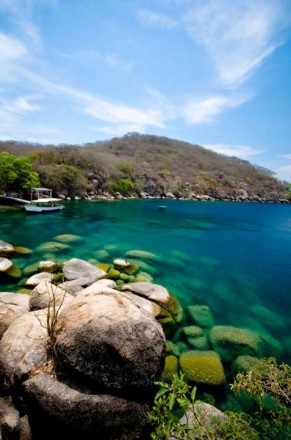One of the hot spots for Malawi tourism is Lake Malawi. The Lake is one of the great jewels of Africa, began forming two million years ago when a massive increase in volcanic activity and the shifting of tectonic plates resulted in the formation of the African rift valleys. Logically, these deep clefts were ideal places for moisture to pool, and the massive land-locked bodies of water we know today as Lake Malawi, Lake Tanganyika, and Lake Victoria were born. Lake Malawi, which is situated in the southern part of the Eastern Rift, is the ninth largest lake in the world, being 600 km (380 miles) long and, in some places, 80 km (50 miles) wide.

Large isolated ecosystems are, of course, the ideal environment for the evolution of endemic species, and Lake Malawi is a stunning example of this fact. The total number of fish species in Lake Malawi is at least 1,000 (95% of which are endemic), representing approximately 15% of the global total of freshwater species and approximately 4% of the world’s fishes. Lake Malawi has the most diverse community of freshwater fish species in the world, which in turn is one of the most diverse and abundant faunal groups in the world.
The most common group of fish in Lake Malawi are the cichlids (haplochromine cichlids, to be precise), which come in a staggering variety of shapes, sizes, and colours—the mbuna, or rock dwellers, are particularly revered for their rainbow-like iridescence. Lake Malawi is so “cichlid-centric” that it contains over 700 species of cichlid and only about forty species of non-cichlid fishes. No other lake in the world contains a greater variety of cichlid species.
Naturally, this makes Lake Malawi one of the world’s premiere snorkelling destinations. Lake Malawi National Park, which lies at the southern end of the lake, was established to protect this unique wealth of tropical fish, and thus makes an ideal place to go and view them in the wild. The Nankhumba Peninsula in particular, which resides in a miniature archipelago of twelve islands and encompasses Cape Maclear, hosts a number of of famous dive sites where one can enjoy scuba diving and snorkelling. It is said that the fish are so numerous here, one nearly has to push them away in order to take pictures!
If you find you have fallen in love with these beautiful fish but cannot get to Lake Malawi any time soon (or if you have been there and wish to continue the experience), don’t worry—many of these species are available to aquarium enthusiasts, and odds are good that you have seen at least one of them at a pet store without even knowing it. Ergo, if you find yourself fascinated by the Lake Malawi ecosystem and in possession of a bit of time and patience, you can turn your hand to creating your own little microcosm of it—just be sure to replicate the lake’s temperature and unique pH values, which are well above neutral, being measured at between 7.7° and 8.6°.




